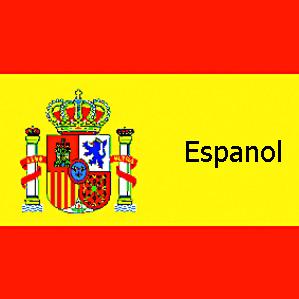
介绍:
Spanish
YMA Ahora, continuamos con el altar.
MARISSA ¿Usted puede hablar más despacio, por favor?
YMA ¡Claro! ¿Hablo muy rápido para Ustedes también?
LUKE Sí. Queremos escuchar cada cosa. ¡Es muy interesante!
English
YMA Now, we continue with the altar.
MARISSA Ma'am, can you speak slower, please?
YMA Of course! Do I speak very fast for you all as well?
LUKE Yes. We want to listen to everything. It is very interesting!
Spanish
YMA Ahora, continuamos con el altar.
MARISSA ¿Tú puedes hablar más despacio, por favor?
YMA ¡Claro! ¿Hablo muy rápido para vosotros también?
LUKE Sí. Queremos escuchar cada cosa. ¡Es muy interesante!
English
YMA Now, we continue with the altar.
MARISSA Can ya' speak slower, please?
YMA Of course! Do I speak very fast for ya' ll as well?
LUKE Yeah. We wanna' listen to everything. It's very interesting!
Vocabulary
continuar to continue, to go on, to
carry on
verb
más despacio slower adverbial phrase
por favor please phrase
rápido, -a quick, fast, quickly, rapids
(pl.)
adverb
cada each, every adjective
cosa thing, matter noun
Vocabulary Sample Sentences
Ella continúa el tour. (She continues the tour.)
Puedo hablar más despacio. (I can speak slower.)
¡Vamos por favor! "Let's go please!"
María corre muy rápido. María runs really fast.
Cada noche, salgo. (Every night, I go out.)
Es una cosa interesante. (It's an interesting
matter.)
Grammar Points
The verb "poder" is an auxiliary verb, which means that it requires another verb to complete its
meaning. These verbs are sometimes called "helping" verbs or "modal" verbs as well.
Let's have a look at how these words are used:
[personal pronoun] + [auxiliary verb] + [main verb] + [noun]
[yo] + [puedo] + [hablar] + [el español]
[I] + [can] + [speak] + [Spanish]
[personal pronoun] + [auxiliary verb] + [main verb] + [noun]
[nosotros] + [podemos] + [continuar] + [el tour]
[We] + [can] + [continue] + [the tour]
Today, we're going to have a close look at the grammar involved with the question "Can you speak
slower, please?". In order to form this question, we are going to need to use the verb "poder", which
Learn Spanish with FREE Podcasts
4
we have seen, means "to be able" or "can". Also, we're going to use the expression "más despacio",
which means "slower".
Here is the full phrase: "¿Puede, usted, hablar más despacio por favor?" (Can you speak slower,
please?). We can see the verb "poder" (to be able, can) is used in the formal sense here: "usted puede".
Recall that "usted" is the formal "you". After the verb "puede", we add the verb "hablar" (to speak),
which is in the infinitive. Then, we add "más despacio", which we saw means "slower". To finish the
expression, you simply add "por favor", which means "please".
To ask this question in the informal sense we would say, "Tú puedes hablar más despacio, por favor?"
(can ya' speak slower, please?). Notice that the only thing that's different, when changing this question
from formal to informal, is the conjugation of the verb "poder". Instead of using the "usted" form and
the corresponding third person singular form "puede", we now use the "tú" form, with the verb form
"puedes".
*This is an important question to learn, as you begin your studies of Spanish, because it helps you get
people to speak 'with you' instead of 'to you', at a speed you can understand.
Cultural Insight
The Spanish language is known for its manner of blending words into each other, when it comes to
pronunciation. Many people who don't speak Spanish believe that this is simply due to the fact that for
them it is a foreign language, and thus, words are indistinguishable from each other. But, this is not
the case. In fact, word do blend into each in Spanish. This phenomenon is called "enlace" or
"word-linking". There are a number of cases in which this occurs, and these will be studies in future
lessons. For now, let's just note that when a word ends with a vowel and begins with another vowel,
those vowels will be blended together. This adds a great deal to the rhythm of the Spanish language,
which is so characteristic of its sound.
大家还在听

